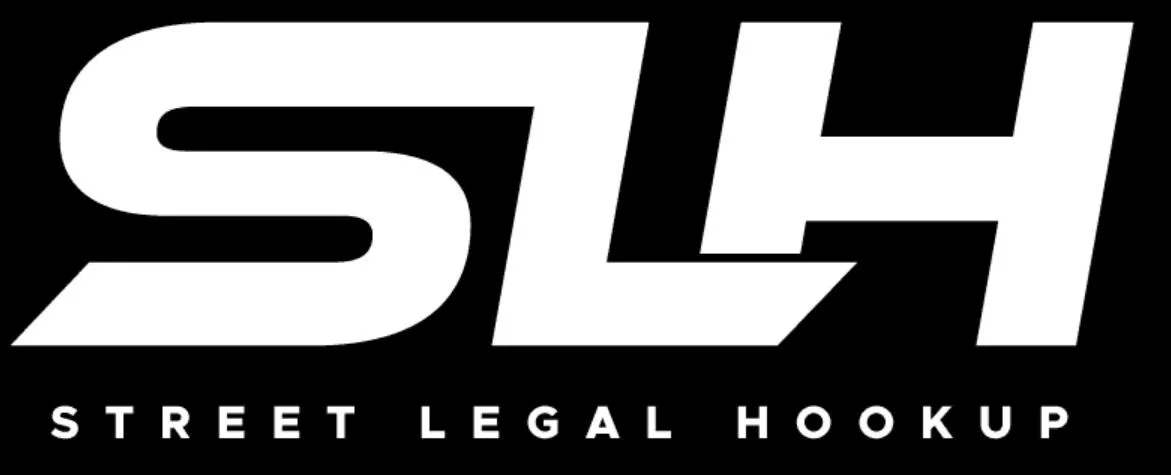Picture yourself driving a UTV through Connecticut’s lush forests or along quiet country roads, soaking in the scenery from Cockaponset State Forest to the hills of Litchfield. For many riders, this vision is clouded by Connecticut’s complex vehicle laws, which restrict UTVs from public roads, coupled with high taxes and the threat of fines.
This UTV guide in Connecticut offers a clear, detailed resource to navigate these challenges, covering state regulations, penalties, equipment needs, and a legal pathway to make your UTV street-legal. Whether you ride for adventure or utility, this guide equips you with the knowledge to enjoy Connecticut’s roads and trails confidently.
Connecticut’s UTV Street-Legal Regulations
Connecticut’s vehicle laws, outlined in Connecticut Statute 14-379, classify UTVs as All-Terrain Vehicles (ATVs), designed for off-road use and deemed unsuitable for public highways. This designation prevents UTVs from being registered as street-legal through the Connecticut Department of Motor Vehicles (DMV). The state’s vehicle categories reinforce this restriction:
- Motorcycles: Limited to three wheels, excluding most UTVs.
- Autocycles: Require three wheels and federal safety compliance (49 CFR 571), which UTVs do not meet.
- Motor Vehicles: Exclude off-road vehicles like UTVs.
Direct street-legal registration in Connecticut is not possible, but an out-of-state registration offers a solution. States like Montana and South Dakota allow UTVs to be registered as street-legal, and Connecticut honors these registrations under reciprocity agreements with Vermont, New York, Pennsylvania, and Florida (Connecticut Statute 14-34). A Montana-registered UTV, equipped with safety features, can be driven legally on Connecticut roads, enabling ATV riding Connecticut enthusiasts to access both trails and highways.
Your UTV must meet the registering state’s equipment standards, such as headlights and mirrors, detailed later. Local police may not be familiar with this niche workaround, so carry physical copies of your registration and insurance to clarify your vehicle’s legal status. This approach expands your riding opportunities, from rural Litchfield to urban Hartford, while staying compliant.
Penalties for Unregistered UTVs on Connecticut Roads
Operating an unregistered UTV on Connecticut’s public roads invites serious consequences. The penalty for riding ATV on road without registration includes fines of $75 to $200 per violation, with potential impoundment until proof of registration is provided (Connecticut DMV). Repeat violations escalate penalties, possibly leading to vehicle confiscation or bans from state-managed trails. In high-tax areas like Fairfield County, authorities may inspect out-of-state plates, especially if your UTV is stored in Connecticut, risking use taxes or additional fines.
The impact goes beyond money. A Waterbury rider faced a $200 fine and a three-week impoundment for riding an unregistered UTV on Route 8, disrupting their summer trail plans. Legal disputes can incur attorney fees, and trail access may be revoked, limiting your ability to enjoy Pachaug State Forest. Registering your UTV properly avoids these issues, ensuring uninterrupted adventures across Connecticut’s diverse landscapes.
Montana LLC Registration for Connecticut UTV Owners
Connecticut’s strict rules make local UTV registration challenging, but a Montana Limited Liability Company (LLC) registration provides a legal alternative. Montana’s vehicle code permits UTVs to be registered as street-legal through a flat fee registration process, offering a simpler and more predictable path compared to in-state registration in Connecticut. This approach streamlines registration and reduces administrative hurdles while maintaining compliance for legal road use.
Benefits of Montana LLC registration include:
- Flat Fee Registration: Montana offers a flat fee vehicle registration structure, providing a predictable and straightforward registration process with lower administrative complexity.
- No Emissions or Inspections: Montana skips smog checks and safety inspections, unlike Connecticut’s requirements.
- Permanent Plates: UTVs over 11 years old qualify for one-time plates, avoiding annual renewals.
- No Residency Requirement: Connecticut residents can register through an LLC without living in Montana.
The process involves creating a Montana LLC, titling the UTV under it, and registering with Montana’s DMV. Connecticut recognizes this registration via reciprocity, allowing road use. However, Connecticut may impose use taxes if your UTV is primarily stored in-state, particularly in cities like Greenwich. A tax professional can clarify these obligations to maintain compliance.
This method suits riders seeking cost savings and simplicity. A Stamford rider saved $7,500 on a $40,000 UTV, redirecting funds to trail gear and a Vermont trip. By registering through a Montana LLC, you gain legal road access, enhancing your ability to explore Connecticut’s trails and beyond.
Step-by-Step Guide to Making Your UTV Street-Legal
Registering your UTV through a Montana LLC is manageable with clear steps. Street Legal Hookup has guided thousands of riders, delivering plates in as little as 3 business days. Here’s the process:
- Pay the Registration Fee: Submit a $995 flat fee via our secure online platform, covering all services without hidden costs.
- Provide Vehicle Information: Enter your UTV’s details (VIN, make, model) and sign digital documents on our customer dashboard.
- Mail Required Documents: Send your title, bill of sale, or other paperwork, following our detailed instructions.
- Receive Your Plates: We handle LLC formation, DMV paperwork, and plate delivery. Permanent plates arrive in 3 to 6 weeks, with 40-day temporary tags available in 1 business day.
Learn more about registering your UTV at our UTV registration page. The process is fully online, eliminating DMV visits. A Middletown rider received temporary tags in two days, hitting Cockaponset trails while awaiting permanent plates. Ensure your UTV is lien-free and insured, listing the LLC as an additional interest, not a commercial policy.
Equipment Requirements for Street-Legal UTVs
A Montana-registered UTV must meet Montana’s equipment standards to be street-legal in Connecticut, ensuring safety without local inspections. Required equipment includes:
- Headlights and Taillights: One headlight and one taillight, functional for low-visibility conditions. Dual-beam headlights enhance safety.
- Turn Signals and Brake Lights: Front and rear signals, plus brake lights, to signal intentions.
- Side and Rearview Mirrors: One driver-side mirror and a rearview mirror for traffic awareness.
- Horn: Audible from 200 feet to alert others.
- Windshield or Eyewear: A windshield or DOT-approved goggles to protect against debris.
- Muffler: Noise below 96 decibels, with a Forest Service-approved spark arrester for trails.
- Tires: DOT-approved for highway use, not off-road knobby tires.
- License Plate Mount: Illuminated rear mount for visibility.
Upgrades are affordable. Turn signal kits cost $100 to $200, mirrors $20 to $50, and DOT tires $150 per set. A New Haven rider spent $400 to equip their Can-Am Maverick, meeting Montana’s standards. Our team can suggest parts for your UTV model, ensuring compliance.
For Connecticut’s OHV areas, additional rules apply (Connecticut Statute 14-387). UTVs need front/rear reflectors and mufflers under 80 decibels. Vehicles under 90cc skip lights but can’t operate after dark. Check trail-specific requirements to avoid violations.
Connecticut’s ATV and UTV Trail Systems
Connecticut’s trails offer exciting rides, and a street-legal UTV lets you reach them without towing. ATV trails in CT are concentrated in state forests like Cockaponset and Pachaug, providing varied terrain for enthusiasts. Here’s a closer look:
- Cockaponset State Forest: In Haddam, Middlesex County, this 16,000-acre forest has 20 miles of multi-use trails. Gravel and rocky paths suit UTVs, with views of the Connecticut River. Access trailheads via Route 9 from Middletown, saving towing costs.
- Pachaug State Forest: In Voluntown, New London County, Pachaug’s 26,000 acres feature 50 miles of trails, including the Pachaug-Ledyard Loop. Dirt and forested paths are UTV-friendly, with Route 49 access for street-legal vehicles.
- Additional Options: Connecticut lacks dedicated OHV parks, but private lands with permission or reciprocity states like Vermont offer alternatives. Vermont’s VAST trails, 100 miles from northwest Connecticut, are reachable with a Montana-registered UTV.
Street-legal status streamlines access. A Norwich rider drove 30 miles to Pachaug, saving $60 in fuel versus towing. Non-street-legal UTVs need a $30 biennial OHV registration, with plates displayed (Connecticut DEEP). Street-legal UTVs may require this for off-road use, unless registered in reciprocity states (Florida, New York, Pennsylvania, Vermont).
Follow trail etiquette: stay on paths, yield to hikers, and remove trash. Noise violations (over 80 decibels) carry $250 fines. View our Connecticut trail map (alt text: “Connecticut ATV trail map”) and check Connecticut DEEP for closures or restrictions.
Common Questions About Street-Legal UTVs in Connecticut
Can I ride my ATV or dirt bike on public roads in Connecticut?
Connecticut prohibits ATVs and dirt bikes on public roads, classifying them as off-road vehicles (Connecticut Statute 14-379). Crossing roads is allowed at designated points, at a 90-degree angle, after stopping and yielding. A Montana-registered UTV can be driven on roads, offering greater flexibility.
Are there specific trails for snowmobiles in Connecticut?
Connecticut provides snowmobile trails in state forests like Cockaponset and Pachaug, covering 100 miles when snow permits (Connecticut DEEP). Snowmobiles need $40 biennial registration, insurance, and mufflers under 80 decibels. Street-legal UTVs access trailheads via roads, enhancing winter rides.
What are the penalties for riding an unregistered ATV in Connecticut?
Unregistered ATVs face $75 to $200 fines, with possible impoundment until registration is proven (Connecticut DMV). Repeat offenses increase penalties or restrict trail access. A Danbury rider paid $200 and lost Pachaug access for a season due to non-compliance.
What are the Connecticut laws regarding DUI on a Powersport vehicle?
DUI on a UTV, ATV, or snowmobile is illegal in Connecticut, with a 0.08% blood alcohol limit (Connecticut Statute 14-227a). Penalties include $1,000 fines, 6 months jail, license suspension, and impoundment. Convictions impact car driving privileges, emphasizing sober riding.
Client Success Stories
Mike T., Hartford: “I saved thousands on my Polaris RZR with a flat fee registration. The process was straightforward, and I was riding legally in days.”
Sarah L., New Haven: “Driving to Cockaponset without towing is amazing. The process was simple and efficient.”
Tom R., Stamford: “My custom UTV’s paperwork was complex, but Street Legal Hookup managed it, saving me $6,500.”
These stories reflect the practical and financial advantages of street-legal registration, enhancing trail and road access.
Partnering with Street Legal Hookup for UTV Registration
Street Legal Hookup simplifies UTV registration for Connecticut riders. Our Montana LLC process offers a streamlined registration path, eliminates emissions tests, and provides permanent plates for UTVs over 11 years old. With a $995 flat fee, an online platform, and plates delivered in as little as 3 days, we focus on clarity and efficiency. Our team specializes in specialty vehicles, ensuring compliance for approved roads and trails. From Mystic to Litchfield, we support your riding goals. Begin your street-legal UTV journey today at Street Legal Hookup.


